By Kara Sherrer
While business school cohorts have become more and more diverse over the past decades, students who don’t fit the stereotypical mold still wonder what their experience will be, especially if they belong to multiple underrepresented groups. To better understand their stories, we spoke with several students about intersectionality and the business school experience. We also talked with Ashley Lomax, Assistant Director of Recruiting and Admissions and Lead Diversity Recruiter, to get her perspective from the other side of the application.
Different Types of Diversity
A candidate who belongs to multiple diversity groups may feel like all their identities should be accorded equal weight. Others have one primary aspect that they identify with most strongly — for example, a female LGBTQIA+ Latina candidate may identify with the Latino community the most.
“Some folks are comfortable being in spaces where they don’t have to identify with all the different facets of themselves. And if that makes you happy and makes you most comfortable, it’s really about you,” Lomax said.
In fact, not every type of diversity is a box you can check on the application. For example, Yang Zhang (MBA’19) — an LGBTQIA+ student who moved from China to the U.S. eight years ago — says he was nervous about finding his place at business school, just not for the reasons people might think. “I was scared and anxious, not because of my minority identity, but because I knew nothing about business,” he said.
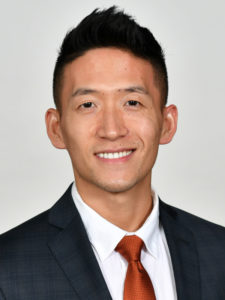
Yang Zhang
Prior to coming to Owen, Zhang was a clinical researcher at St. Jude’s Hospital in Memphis, spending most of his time in a lab. He says that he didn’t even know how to talk with other business students about his science background. “I factored (being LGBTQIA+) into my overall consideration a little bit, maybe like 5%,” he said. “But I feel like my struggle was the switch from (being) a scientist to a business person. I was more looking at schools from that standpoint.”
Sometimes feeling different stems not from the student’s pre-MBA career background, but rather other life circumstances. For example, Tiffany Stillwell (MBA’20) is a woman and an Army veteran — but she’s also a mom of two kids, something that definitely puts her in the minority at business school. “It’s a completely different experience for a parent,” she said. “It’s definitely hard to be a mom and be a student again, but it’s so worth it.”
While there might not be an explicit place in the business school application to talk about every aspect of diversity, admissions officers say that the interview is a great place to bring up that piece of your identity if you’re looking for support. “It’s (the student’s) journey, and I really try to be cognizant of that, but the earlier you disclose the better — that way we can actually talk to you about resources (and scholarships),” Lomax explained.
Moving to the South
The thought of attending a school in the American South can make students from many underrepresented backgrounds pause. Even if the candidates themselves aren’t hesitant, they may have to convince friends and family who have misconceptions about Music City itself. “A lot of people, they’ll hear ‘Tennessee’ and not ‘Nashville.’ It’s all clumped together,” said Ilvens Jean (MBA’19), who was born in Haiti but spent most of his life in the U.S. Jean says that some of his friends are still skeptical that Nashville is as progressive as he claims it is — though he’s looking forward to dispelling these thoughts when they come to visit for graduation in May.
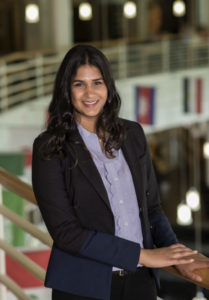
Sumedha Niranjan
In fact, students say that Nashville is becoming more progressive each year as more and more young people move to the area. Sumedha Niranjan (MBA’20) — who was born and raised in the U.S., but spent her childhood summers visiting family in India — says Nashville has greatly improved since she moved here in 2012. “When I first moved here, I was thought of as diversity…I’ve gotten the word ‘exotic,’” she explained.
“Living in Nashville previously, I kind of shied away from the diversity side of myself. I grew up very cultural, very religious, because my family is…I almost felt like I had to suppress it,” she continued. “(But at Owen,) I don’t feel like it’s something that I separate from who I am or how I make decisions. It’s nice, to be able to re-experience this city in a very different way.”
Finding Support at School
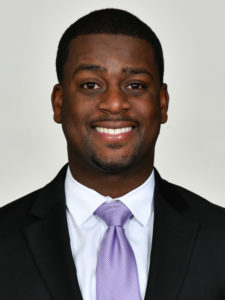
Ilvens Jean
Both during the application practice and after enrolling at business school, students from various diverse groups look to their peers for support. “It’s very helpful and beneficial (to connect with) someone else who has a similar background or a similar story in terms of being a minority or double minority,” Jean said. “There’s certain commonalities that we would have just from being part of that (Haitian) culture,” for example.
To that end, Jean has gotten involved with the Owen Black Students Association (OBSA), where he is the VP of Finance. Beyond putting on programming for current students, OBSA has also made an effort to connect with black prospective students and answer any questions they have about the community at Owen.
Another student group that works a lot with prospective students is the Armed Forces Club. Stillwell spent 11 years in the Army before coming to business school, and she says the Armed Forces club was a large part of what drew her to Owen. “I was a little bit nervous about coming (to business school) and not being able to find my place… that’s why I say it’s so important to find a program like Owen that has a group that’s specifically for (veterans),” she said.
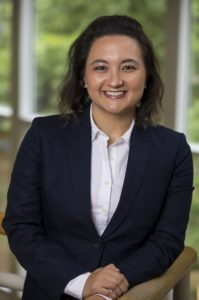
Tiffany Stillwell
“I’m so grateful for the camaraderie and the family that our veteran group has,” she continued. “For a vet, it is hard to give up that old life. You’re transitioning out of the military, you’re trying to figure out what civilian life looks like: Who am I outside of uniform? It’s so important to have a group of people that can relate.”
Other clubs at Owen include the Latin Business Association (LBA), Out & Allied, and the Women’s Business Association (WBA). “They do a great job of hosting a number of events…they’re constantly offering something,” Niranjan said of the WBA.
In addition to reaching out to student clubs, campus visits are a great way to connect with the student population. “I would say the most important thing is to observe the other prospective students who are visiting the campus along with you,” advised Zhang, who’s also co-president of Out & Allied. “(And) talk to the current students to see if this is the kind of environment where you can fit in. What differentiates programs the most is the student body, because these are the people that you spend the most time hanging out with.”
Connecting with Outside Organizations
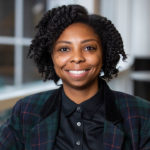
Ashley Lomax
The resources available to students from many underrepresented backgrounds hardly stops at the boundaries of campus. For example, Vanderbilt Business has affiliations with many outside organizations, including the Forté Foundation for women; Management Leadership for Tomorrow, National Black MBA Association, Prospanica, and the Association of Latino Professionals for America for minority students; Military MBA and the Service Academy Career Conference for veterans; Reaching Out for LGBTQIA+ students and allies; and Graduate Horizons for Native Americans.
Many of these associations offer pre-MBA support for prospective students, as well as career conferences, job boards, and other resources once candidates enroll in a b-school. These associations and events can help students from certain backgrounds connect with schools and employers who are consciously looking to enroll or hire diverse candidates.
For instance, as a Forté Fellow, Stillwell had the opportunity to participate in the foundation’s annual summer conference. While there, she ended up connecting with recruiters from Davita, and will be interning at the healthcare company this summer as part of their Redwoods leadership program. “I think that I wouldn’t have had the opportunity to get my internship so early on if it wasn’t for Forté,” she said.
Whatever the students’ background, the admissions team recommends that if candidates strongly identify with underrepresented communities, they should feel comfortable showcasing that identity (or identities) in both business school and job interviews.
“This is probably my personal advice (being) an African American, LGBTQIA+ member, and a woman… I’ve found myself being miserable trying to fit into a box,” Lomax said. “It’s easier said than done, but it’s probably best to go ahead and take a leap of faith and be who you are. And if that place doesn’t accept you, then that’s probably just not the place for you” — and there of plenty of other business schools that will embrace your whole identity.